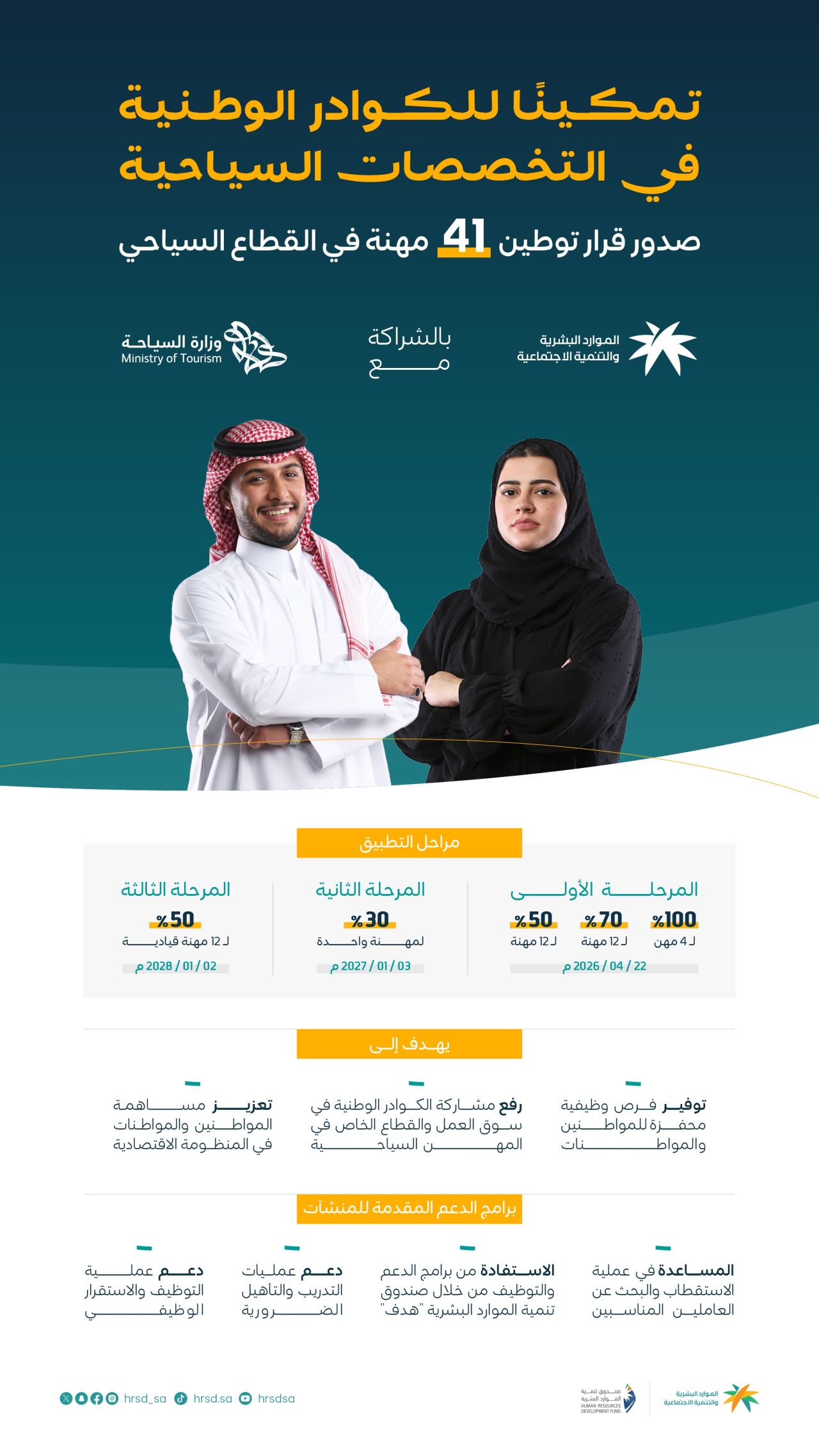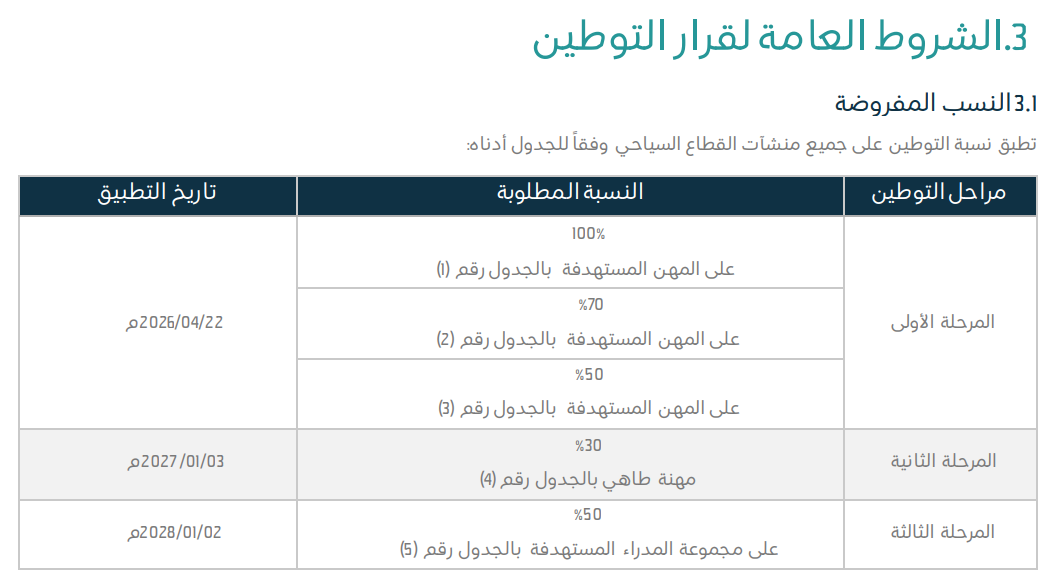
Saudi Arabia plans Saudization of 41 job roles in Tourism sector: Check details here
Employment LandscapeEconomy & Policy#Hiring
The Ministry of Human Resources and Social Development (MHRSD) has initiated the Saudization of key job roles in the Kingdom’s tourism sector, in collaboration with the Ministry of Tourism.
The initiative aims to empower local talent and strengthen the national workforce, providing them with stable and rewarding employment opportunities aligned with the Kingdom’s broader economic transformation goals under Vision 2030.

The Ministry stated, “In partnership with the Ministry of Tourism, the efforts aim to provide motivating, productive, and stable job opportunities for Saudi men and women across various regions of the Kingdom—and to enhance their participation in the labour market. In reference to Ministerial Decision No. (137440) dated (April 23, 2025), the updated procedural guide for the Saudization of professions in the tourism sector has been approved.”
Saudization rate for Tourism sector's job roles
The guideline outlines the process of Saudization implementation in the sector, along with the rate for job roles that will be prioritised. The initiative will be implemented in three phases, starting from April 2026 to January 2028. Over 40 job roles will be prioritised for Saudization efforts in the following phases:
Phase 1: Hotel receptionists, information clerks, front desk agents, guides, PR specialists, and hotel inspectors.
Phases 2 & 3: Chefs and managerial positions.

The quotas set for these job roles include:
- 100% Saudization: Hotel receptionists, front desk staff, information clerks, etc.
- 70% Saudization: Tourism guides, hotel inspectors, branch managers, PR specialists, etc.
- 50% Saudization: Marketing, hospitality, ticket sales, events coordinators, etc.
- 50% Saudization: Hotel operations managers, marketing managers, sales directors, etc.
- 30% Saudization: Chefs.
The government is also extending support to organizations in implementing these rates successfully, including recruitment, training, and the integration of Saudi workers into the tourism workforce. Companies will also have priority access to national employment support programs during the grace periods outlined in the guide.
Companies will be given a grace period to achieve compliance, but those failing to meet the quotas after the deadlines will face strict penalties under existing labor laws. The procedural guide, which provides clarification on recruitment, minimum wage regulations, and how job titles versus actual duties are interpreted under the new rules, is available on the official website.
This effort aligns with KSA’s objective to create better job opportunities for local talent and place young Saudis who are ready to join the workforce.
The tourism sector in Saudi Arabia is witnessing record-breaking growth. In 2024, it recorded revenue growth of SAR 49.8 billion, a 7.8% increase from 2023, as reported by the Ministry of Tourism. The ministry remarked, “This success also reflects the effective implementation of best practices in tourism development, enhanced services and products, and strong government collaboration, all advancing the goals of Saudi Vision 2030.”
You may also like:
- Latest Senior HR leadership movements: Riyad Bank, GCCB, NBK & more
- Who gets the credit? Or, how to recognise human work in a marketplace flooded with AI
- Why hiring the right talent takes time & strategic HR investments pay off
- New hiring mantra for onboarding long-term high-performers
- 5 ways (with Insights) to build a more positive workplace culture
Recently, KSA has also increased efforts to secure healthcare job roles for national talent. Similarly, the engineering sector is now required to hire Saudi nationals, who must make up at least 30% of their total workforce, as the targets have been revised.








